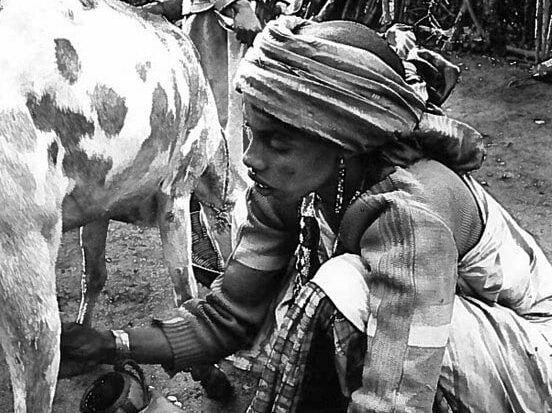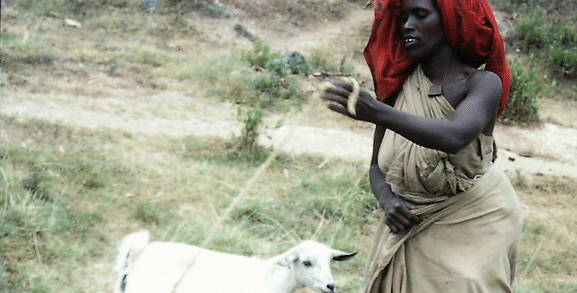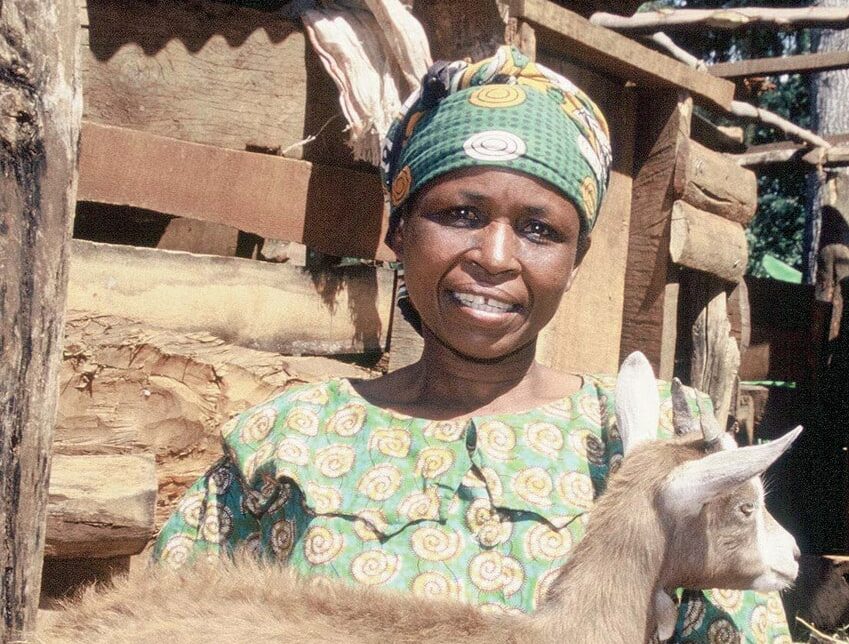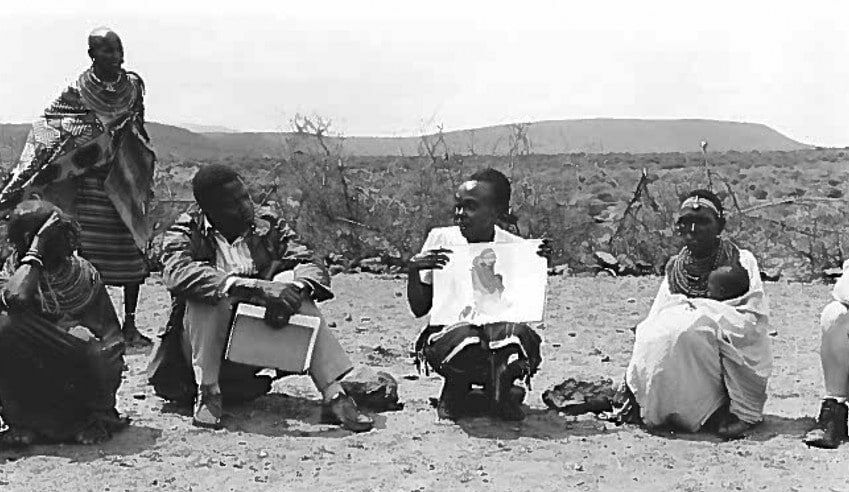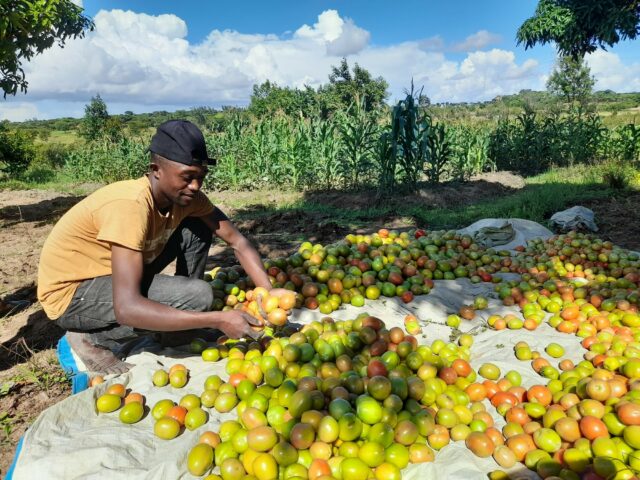About us
1985
1985
In 1985, Sir Michael Wood, a doctor and the founder of AMREF Health Africa and David Campbell, an agriculturalist and specialist in African rural development, established Farm Africa in response to the famine in Ethiopia.
Wood and Campbell shared a vision of a prosperous rural Africa. They identified food as the best medicine and believed that developing small-scale agriculture is the key to reducing rural poverty.
Speaking at Farm Africa’s 30th anniversary celebrations in 2015, David Campbell commented:
“We both believed passionately in the need to revitalise African agriculture, to break the mould which often inhibited development and to find new more effective strategies.”
Originally called FARM-Africa (Food and Agricultural Resource Management), the charity’s initial aims were to target farmers and herders who had the capacity for expansion; work with them to find solutions to help lift them out of poverty; draw on the latest research; look for approaches that could be used more widely by other communities, development groups and governments; and publicise successes and also failures.
These principles are still very relevant to the charity today, which has now been renamed Farm Africa.
1987
1987
In 1987, we started work with nomadic pastoralists in the remote north of Kenya, expanding to Ethiopia a year later.
Initially we focused on assisting extremely poor widows and their children by providing them with goats on credit. When the goats gave birth, the family then passed two kids onto another family.
Access to veterinary services meant the goats were healthy and produced plenty of nutritious milk and as women usually look after goats, we were also able to help empower women through this project.
The success of this project in 1988 led to other similar projects being adapted and rolled out throughout Kenya, and then in Tanzania in 1990 and Uganda in 2003.
1991
1991
In 1991, Farm Africa began work in South Africa where we helped groups in the Northern Cape Province develop their land, establish loan facilities and secure grants to buy agricultural equipment.
1998
1998
Throughout the nineties we fostered community fundraising support from the UK before launching FARM Africa USA in 1998.
2002
2002
Then in 2002 Michael Palin, a long-term supporter of the charity, became our patron. Michael has supported Farm Africa in many ways, including reporting on our work in Ethiopia, presenting three BBC Radio 4 appeals for Farm Africa and giving readings at our annual virtual concert.
2005
2005
In 2005 we began working in South Sudan but had to cease operations in 2012 due to ongoing conflict in the country.
2011
2011
In 2011 we launched Food for Good, a business network and opportunity for food and farming companies to invest in Farm Africa’s work.
The campaign started with a group of food industry leaders climbing Kilimanjaro in support of our work, and has evolved to become a strong network of like-minded organisations united in support of Farm Africa.
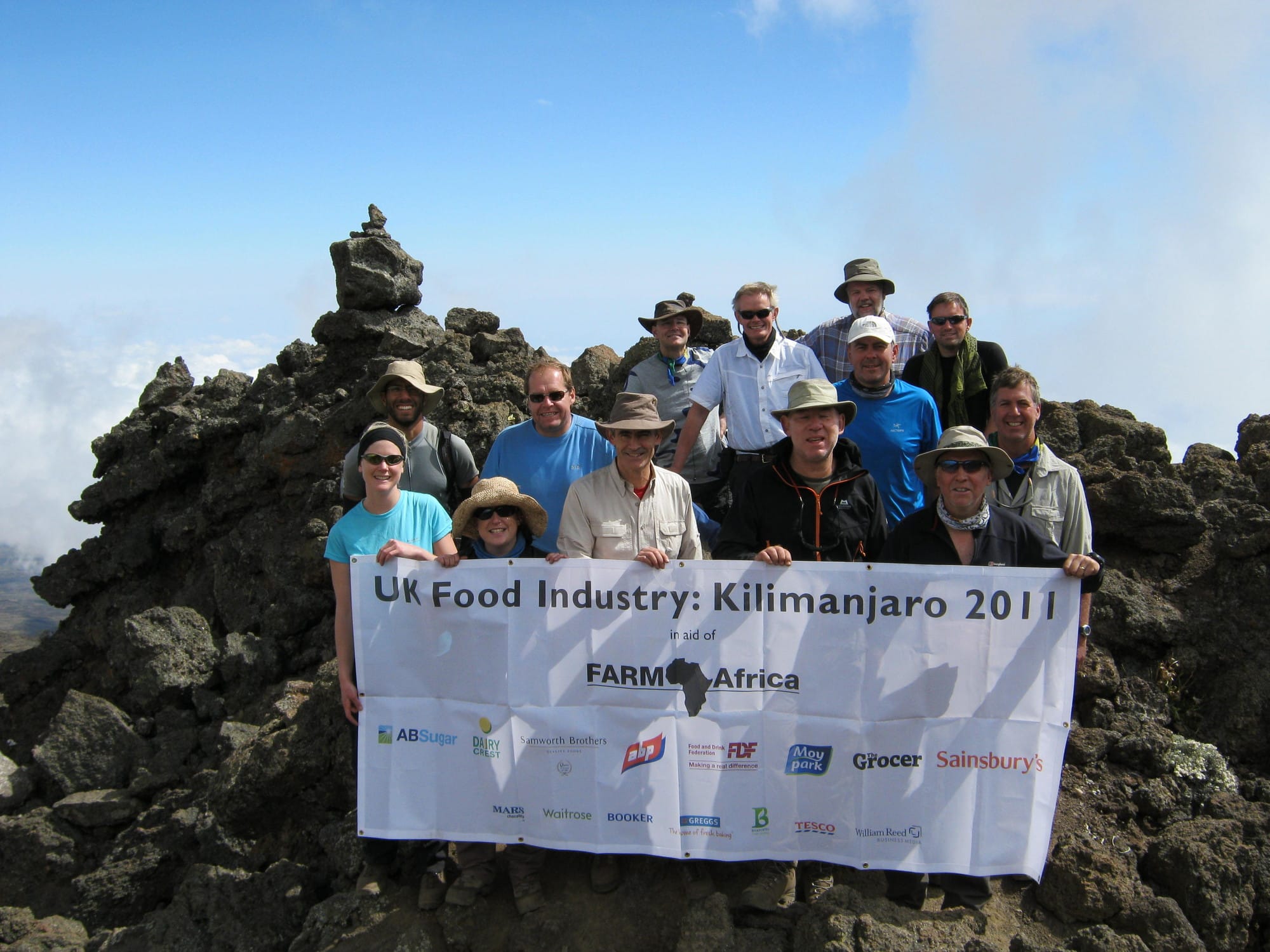
2012
2012
In 2012 Farm Africa and a consortium of partners began implementing Ethiopia’s first reducing emissions from deforestation and forest degradation (REDD+) project.
Having worked in the Bale Eco-region, a biodiversity hotspot, on a participatory forest management scheme since 2006, Farm Africa had been refining its forest management system for many years, supporting local forests users and the government to manage the responsibilities and benefits of the region’s forests together.
The REDD+ project is a framework that incentivises forest protection and mitigates global climate change, enabling developing country governments and communities to be paid for actions that prevent forest losses and thereby reduce carbon emissions. Our work on REDD+ continues today with our Making forestry sustainable project.
2013
2013
Then in 2013 Farm Africa was chosen to be a charity partner in the Guardian and Observer’s 2013 Christmas appeal, asking for support for farmers in Katine, Uganda.
2014
2014
In 2014 we began work on the Supporting Horn of Africa Resilience (SHARE) initiative, which improves the livelihoods of vulnerable people who depend on the Bale Eco-region, while ensuring the area’s critical ecosystem is protected. You can learn more about our current work on Preserving the ecosystem in and around the Bale National Park here.
2015
2015
As part of the UK Government funded BRACED (Building Resilience and Adaptation to Climate Extremes and Disasters) programme, Farm Africa created the Market Approaches to Resilience (MAR) project in Ethiopia in 2015.
This project tested market-based approaches to improving the resilience of vulnerable pastoralist and agro-pastoralist households to climate change in the Afar, Southern Nations, Nationalities, and Peoples’ Region (SNNPR) and Somali regions.
2016
2016
In 2016, having worked in the fish farming sector in Kenya for many years, Farm Africa began the Kenya Market-led Aquaculture Programme. This project boosted fish production in ponds to help protect Lake Victoria’s strained resources, offered the population a sustainable source of fish and provided fish farmers with reliable incomes.
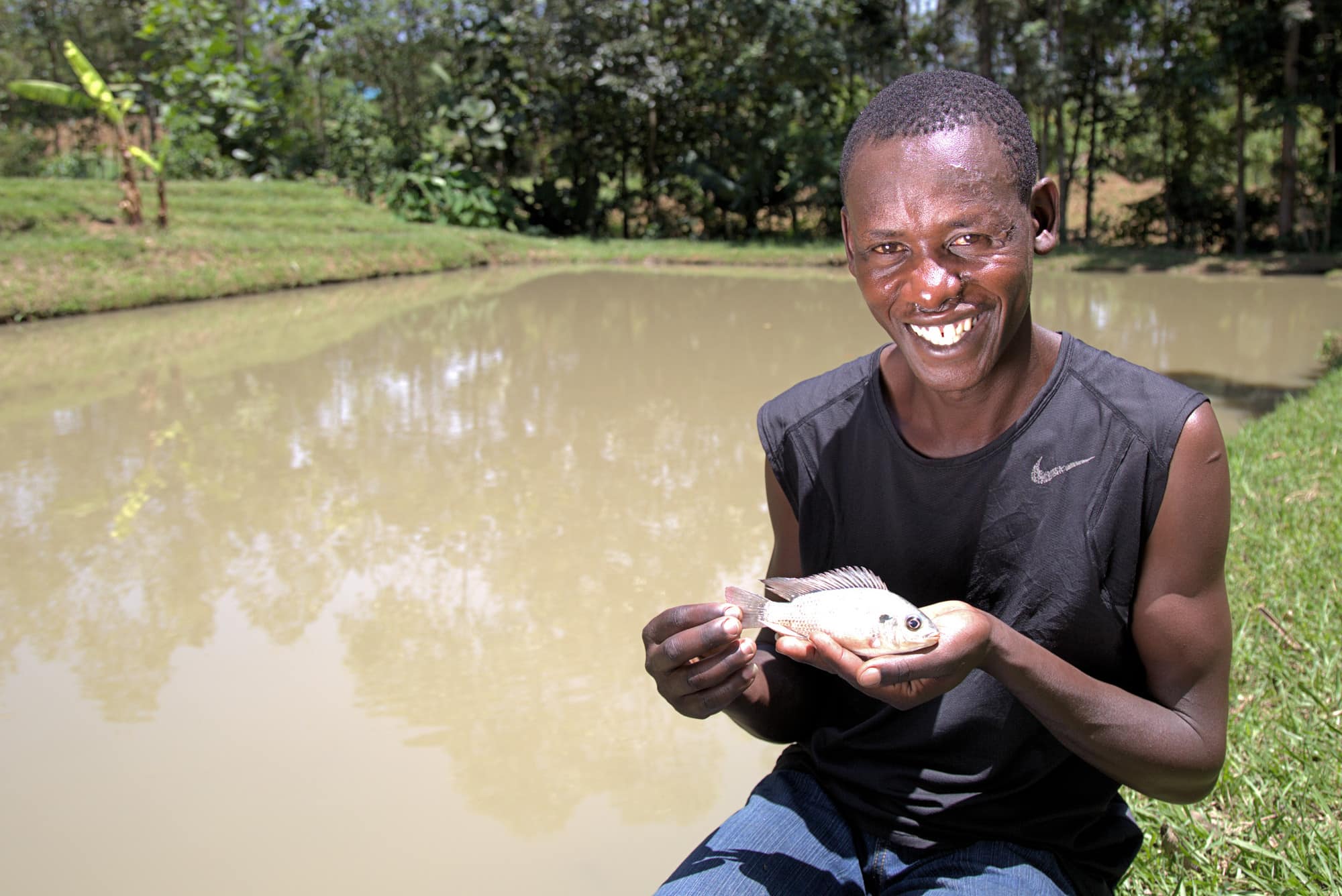
Photo credit: Tara Carey
We continue to build a resilient and inclusive aquaculture environment to promote economic justice for smallholder farmers with our Youth in sustainable aquaculture project.
2018
2018
In 2018 we started working in DR Congo, unleashing the potential of coffee production in the Virunga National Park and boosting the livelihoods of coffee farming families living along the park’s borders.
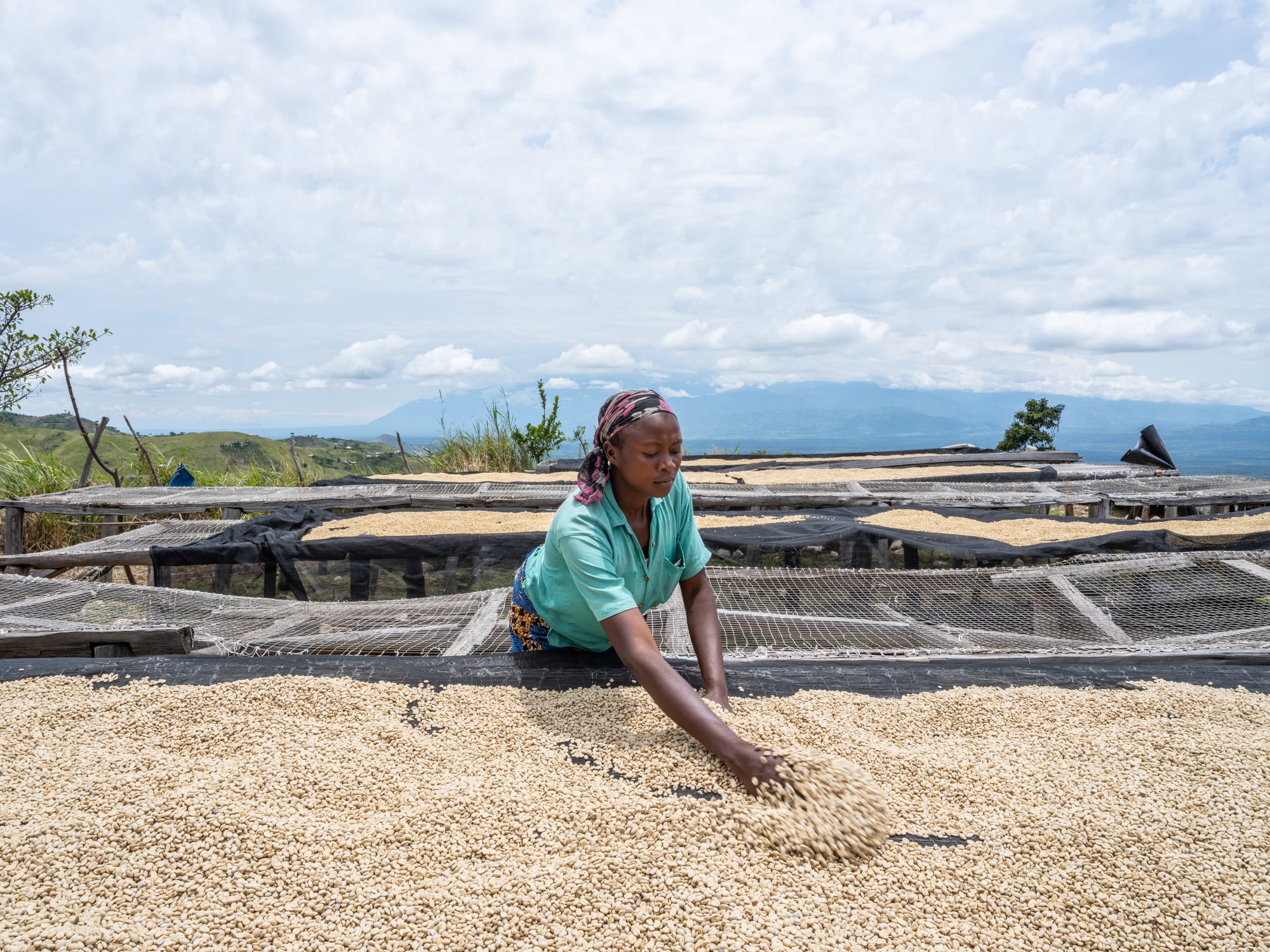
Photo credit: Carl de Keyzer / Magnum Photos for the Virunga Foundation
We also launched Livestock for Livelihoods in 2018, a project funded by UK aid from the UK government and Jersey Overseas Aid which supported women in South Omo in Ethiopia and Karamoja in Uganda to set up goat-rearing businesses, which enabled them to earn their own money and improve their families’ diets.
2019
2019
In 2019 Farm Africa was featured twice on the BBC programme, Follow the Food, for our projects Growing Futures and Markets Approaches to Resilience.
2020
2020
In early 2020, communities working with Farm Africa in Ethiopia and Uganda had crops, livestock fodder and trees destroyed in the worst desert locust invasion to hit the region in decades. This invasion alongside the impacts of COVID-19, which had an unprecedented impact on economies and livelihoods, worsened the already dire food security situation in the greater Horn of Africa.
In support of Livestock for Livelihoods, we held a photo exhibition entitled Goat Power in London in 2020, showcasing a collection of images from the project. Taken by international award winning documentary photographer Chris de Bode, from photographic agency Panos Pictures, the photos gave an intimate look into the lives of pastoralist women and their communities and the different ways that the goats have empowered them.
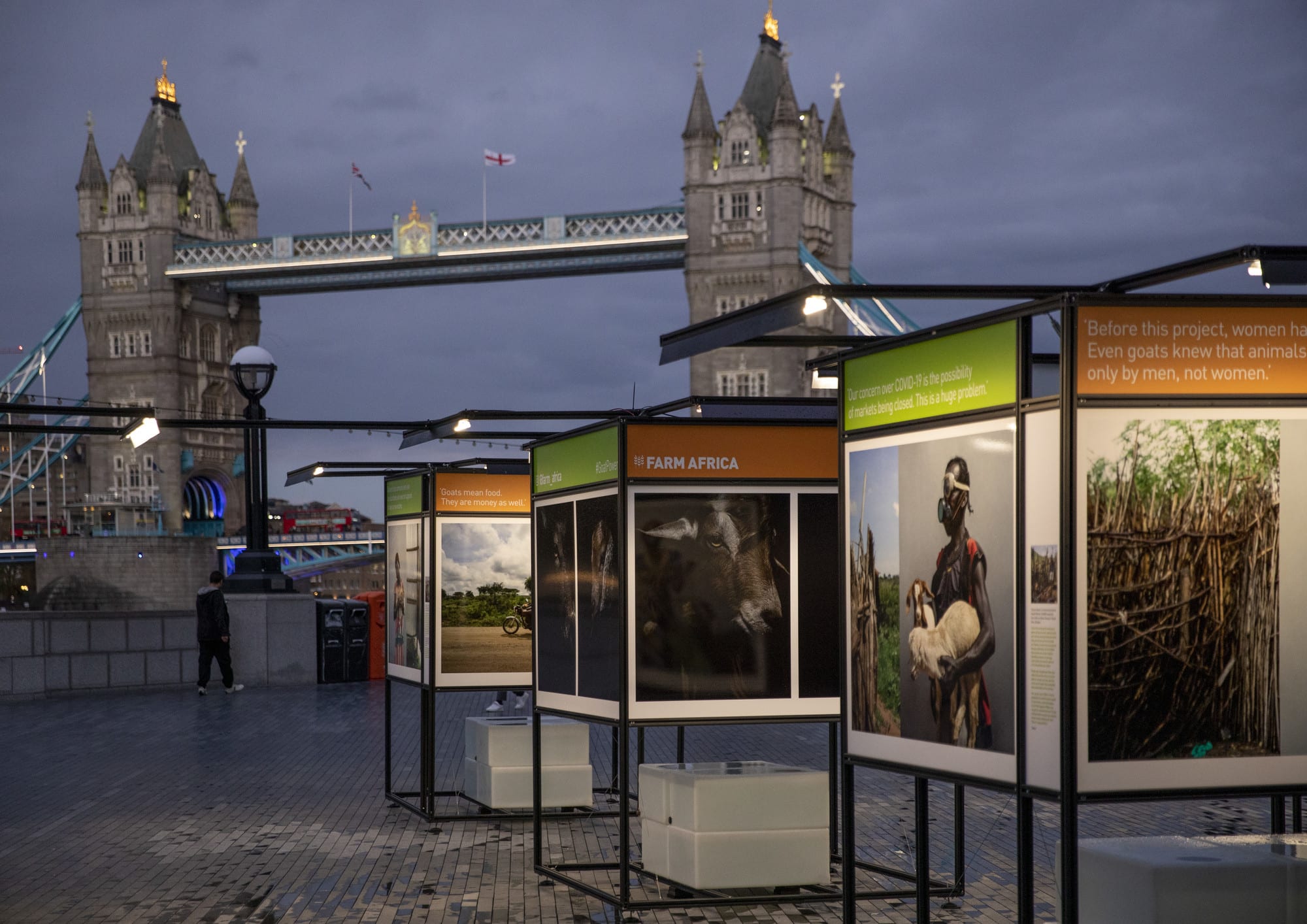
Photo credit: Yiannis Katsaris
2021
2021
In 2021 we launched our new strategic plan for the years 2021 to 2025. The strategy focuses on our three pillars of agriculture, market engagement and the environment, which are underpinned by five cross-cutting themes of climate action, gender equality, youth unemployment, resilience and agri-tech. Learn more about our strategy here.
2022
2022
In 2022, farming communities in eastern Africa faced a triple C crisis as conflict, Covid shocks and the climate crisis caused widespread threats to lives and livelihoods. A severe drought plagued eastern Africa where acute water shortages, reduced food availability and livestock deaths led to over 30 million people facing a hunger crisis.
In addition to the already dangerous threats of the COVID-19 pandemic and conflict in northern Ethiopia which further compounded the crisis, the region also felt the impact of war in Ukraine through a spike in agricultural commodity prices.
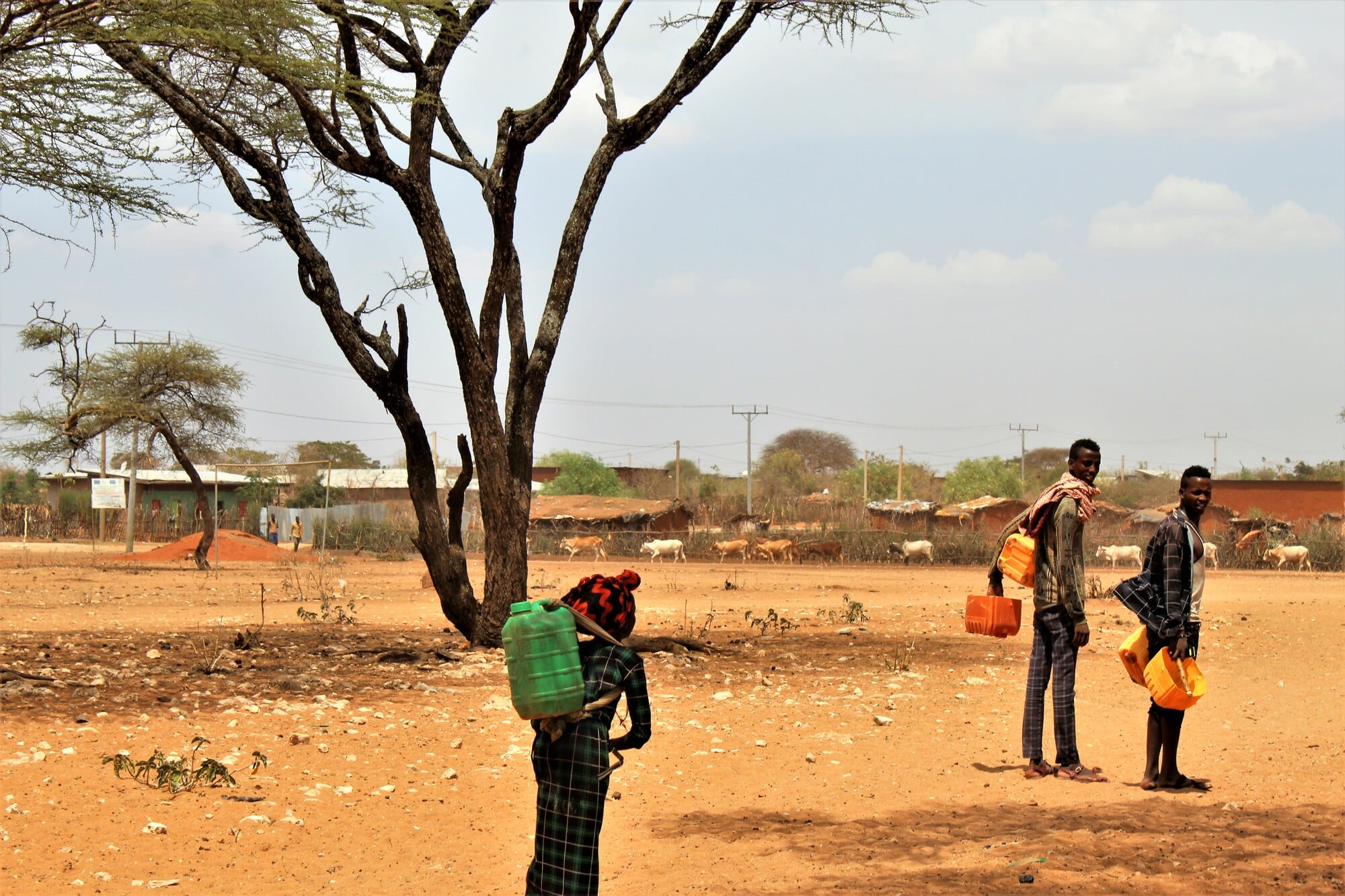
2023
2023
In a significant move towards advancing sustainable development and biodiversity in Ethiopia, Farm Africa and the Swedish Embassy in Ethiopia launched a new programme, Nature-Based Solutions. The four-year programme aims to sustainably manage forests, conserve biodiversity, build communities’ resilience to climate change and develop sustainable livelihoods through holistic nature-based solutions across three eco-regional clusters.
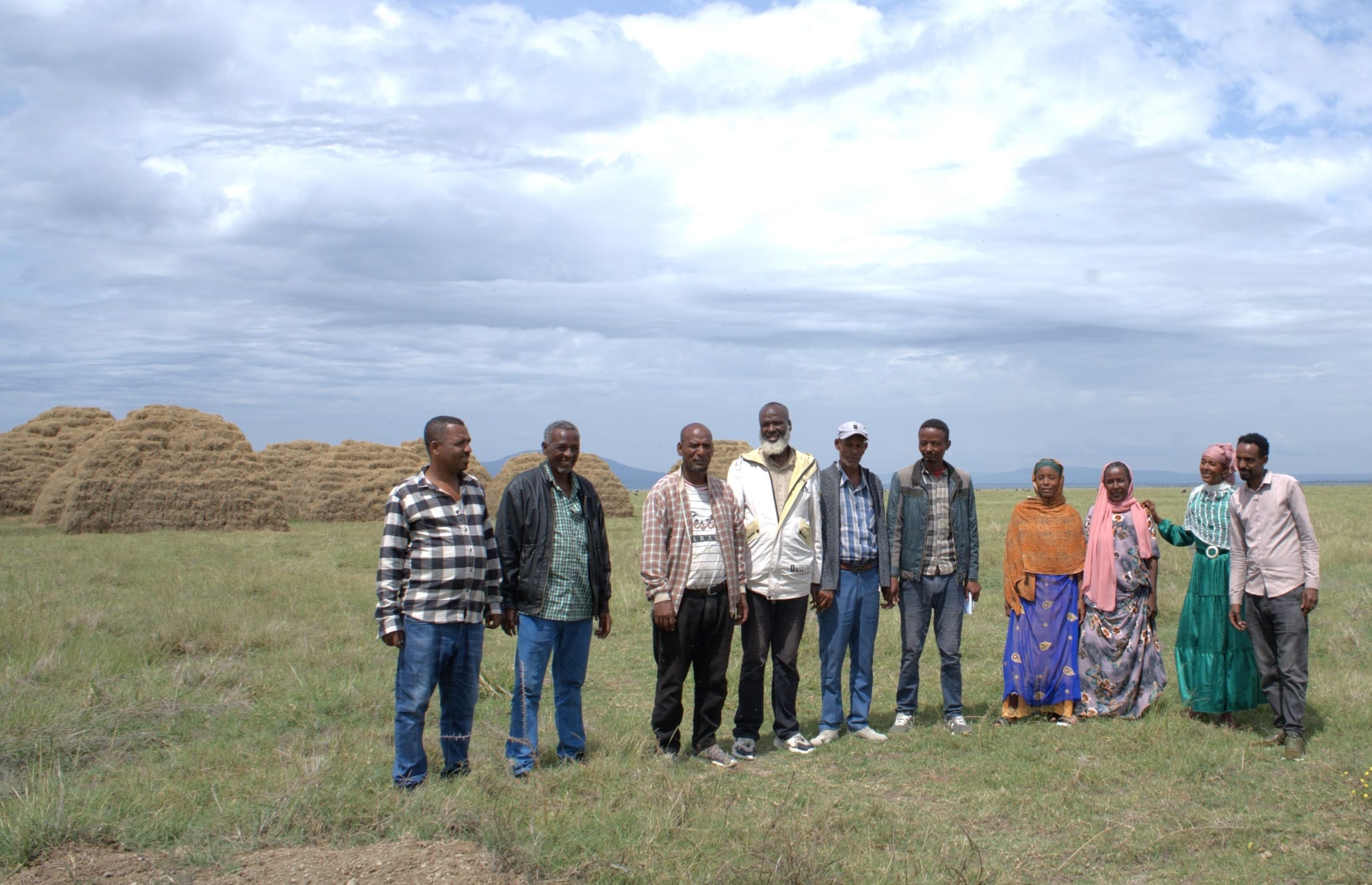
In Kenya, the Mastercard Foundation joined forces with Farm Africa and partners to launch the Youth in Sustainable Aquaculture programme, focused on build thriving, dynamic aquaculture and mariculture sectors. The five-year programme aims to create sustainable, dignified jobs for 150,000 young women and men, internally displaced persons and people with disabilities.
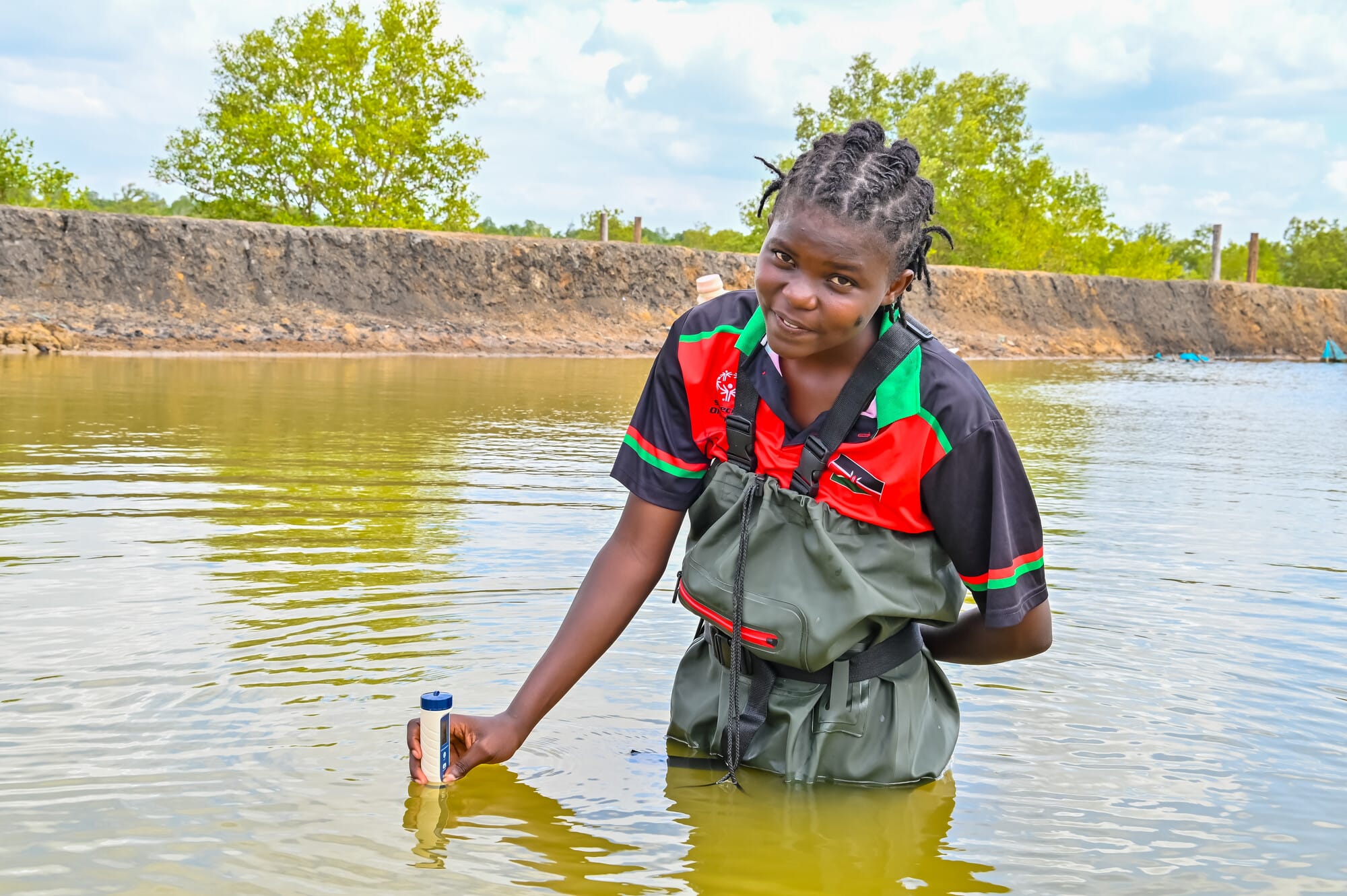
Today
Today
Today, our work is focused on eastern Africa. We operate programmes in Ethiopia, Kenya, Tanzania, Uganda and DR Congo promoting sustainable agricultural practises, strengthening markets and protecting the environment.
You can find out more about our current projects and where we work here.

Photo credit: Michael Goima
